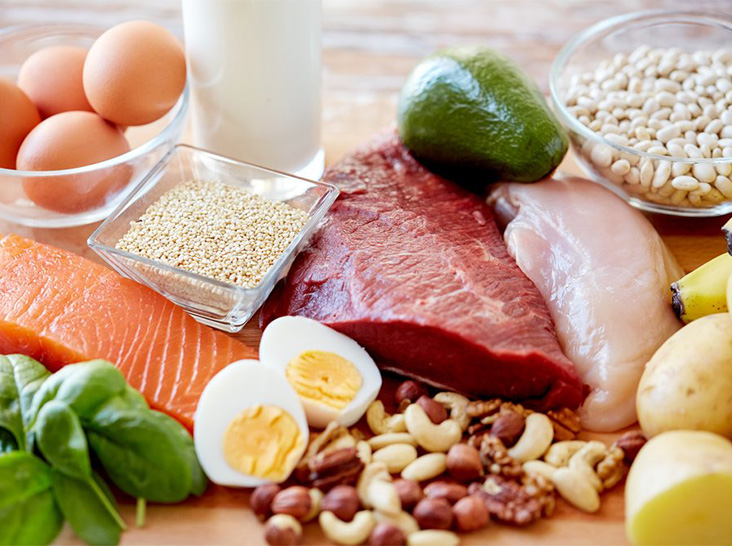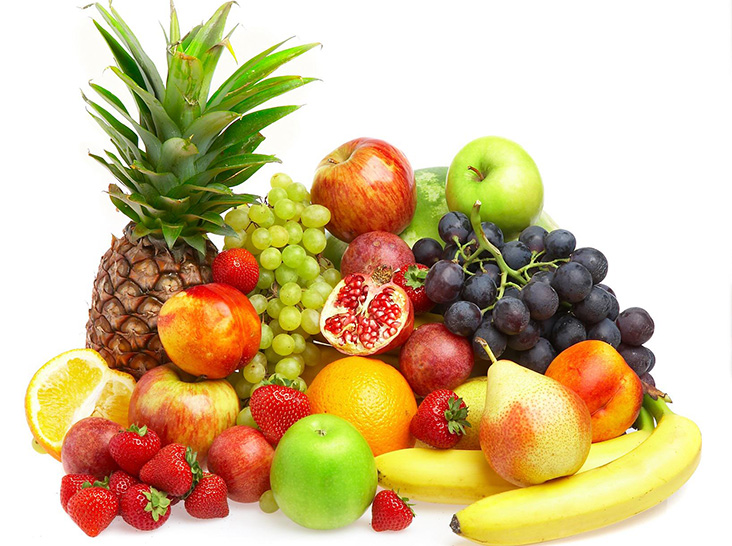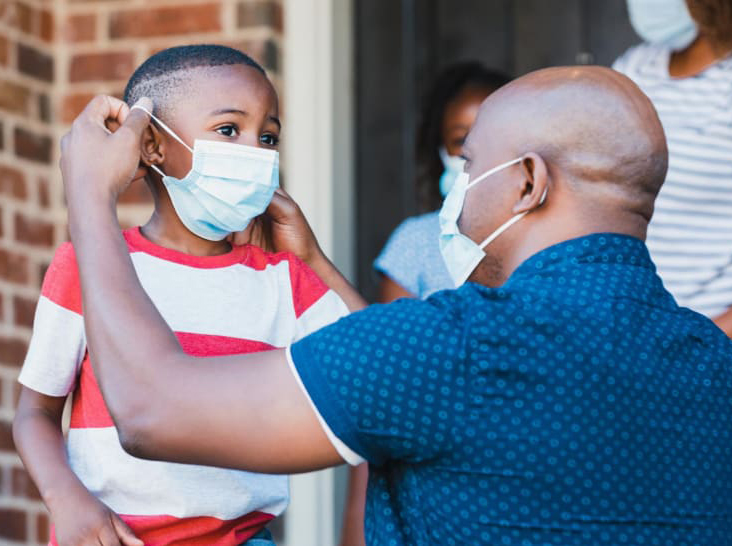BACK TO SCHOOL!
This week, schools across the country, since March 2020 when the coronavirus outbreak was declared a pandemic, officially opened their doors – albeit with new rules and at much more reduced capacities.
Though going back to in-person is a move contested by many health officials, both students and teachers have missed the interaction and opportunities offered by face-to-face education. As part of the new shift system introduced to minimize overcrowding at schools but still preserve a sense of normality.
Having been home for all that while, Parents have been able to ensure that children are having a good diet to build their immunity system. Coupled with the economic and organizational uncertainty and the worry of rising cases, parents have been frantically searching for ways to keep their children as healthy as possible in the event that they start socializing again at school. The most widespread mistake parents make that usually does more harm than good is feeding their kids all types of vitamins and supplements in the hope that it will boost their immune systems against colds, the flu, and the now-infamous coronavirus. Doing so, and especially not under medical supervision, is dangerous.
When excess amounts of fat-soluble vitamins such as A, D, E, K are taken, they may accumulate in some organs and negatively affect the functioning of those organs. Certain foods are known to strengthen the immune system, such as elderberry, ginger, and turmeric, and especially when consumed in uncontrolled amounts in supplement form, can even over-activate the immune system and lead to serious health problems.
Here are few measures to observe to ensure that their immunity remains at its best to prevent them from getting common colds and infections
1. Eat your vitamins, naturally
It is essential to have a diet rich in protein, which is the building block for our tissues and body as a whole.
“To ensure your children are getting sufficient protein, try to eat fish at least twice a week, red meat twice or three times a week, and legumes such as beans, chickpeas, and lentils two to three times a week. If they are not allergic, have them eat eggs, cheese, and butter every morning.
Encouraging them to eat fruits and vegetables that are in season to get vitamins naturally is also crucial. Oranges, tangerines, or pomegranates are great sources of vitamin C and great to boost the immune system.
Probiotics can also strengthen the immune system by keeping everything running smoothly, which should be consumed in the form of homemade yogurt. Prebiotics such as bananas and asparagus are also good foods to add to children’s diets. Unlike probiotics, which are live bacteria found in fermented foods, prebiotics are types of dietary fiber that feed gut-friendly bacteria, so you will get the most benefit from having them both in your diet.
Nuts should also be a part of a healthy diet. Thanks to vitamin E, zinc, and omega 3 fatty acids they contain, walnuts, almonds, and hazelnuts can help strengthen the immune system.

2. Practice hygiene, wear masks
All germs, including the coronavirus, are easily transmitted because of poor hygiene and contact with other people or objects or via oral and nasal secretions. Children are also more likely to catch viruses from the constant touching of their mouths or noses. For this reason, before and after meals, parents should be teaching their kids to wash their hands with plenty of water and soap for at least 15-30 seconds and take a bath or shower every day after going outside, if possible.
3. Have them drink plenty of water
Children often forget to drink water, so make sure you keep track of their intake and make frequent reminders. Drinking enough water helps regulate blood circulation, supports the metabolism, and facilitates the elimination of harmful substances and toxins from the body. At the same time, being indoors with central heating decreases the humidity in the room, causing the respiratory tract to become dry and irritated, and hence increases the risk of upper respiratory tract infections. You can reduce this risk by drinking plenty of water and staying hydrated.
4. Establish a sleeping schedule
When children are tired and sleepless, their body resistance decreases, and they get sick very easily. Make sure your children get enough sleep to increase their ability to fight any diseases that might come their way. Make sure they go to bed at the same time every night.
5. Do not slack on sports
Being home-schooled may be causing children to become increasingly sedentary, so it is important to get them moving. Exercising and staying active also strengthens the immune system and increases body resistance against diseases. The best way to get children to move is to choose sports that they will find fun and help them develop.
6. Keep rooms well ventilated
Not only do closed and poorly ventilated environments mean germs stay trapped there for a long time, but they also constitute a risk for respiratory infections and can make people feel lightheaded or achy if not enough oxygen circulates in the room. Studies with the coronavirus have shown that getting fresh air and using fans decreases the chances of being infected.

The big question is, what about children in Boarding School whereby due to the high numbers of students maintaining a well-balanced diet is almost impossible?
What happens now that they are going back to school where there is minimal parental supervision?
In such circumstances, parents are advised to get well-balanced multivitamin preparations for the children. Ensure that you do not buy just any multivitamins for your children but the very specific ones that contain the recommended daily allowances of each vitamin as advised by the Doctors or Nutritionists. The most important vitamins for immunity building are as follows
It is important to note that teenage boys and girls do not require similar quantities of vitamins. It is important to get gender-specific multivitamin formulations at this stage.
1. Zinc
One of the most important minerals that can help a kid’s immune system is zinc. “It’s typically found in protein-based foods. Oysters, red meat, and poultry are some of the best sources. Beans and nuts are also a good source of zinc, though the animal-based foods will deliver more of the mineral.
The recommended daily intake of zinc for kids is:
• Birth to 6 months: 2 mg- 4mg
• Infants 7–12 months: 3 mg-5 mg
• Children 1–3 years: 3 mg-12mg
• Children 4–8 years: 5 mg-23 mg
• Children 9–13 years: 8 mg-23mg
• Teens 14–18 years (boys): 11 mg-24mg
• Teens 14–18 years (girls): 9 mg-20mg
2. Vitamin D
Known as the sunshine vitamin, it is one of the most important and powerful nutrients for supporting the immune system. Food sources are limited but include Salmon, Mackerel, Tuna, Sardines, Vitamin D fortified like milk and cereals.
In general, it is best to get most of your vitamins from food, but vitamin D may be the exception to that rule. It is available in supplement formulations.
The amount of vitamin D you need each day depends on your age. Average daily-recommended amounts for kids and adolescents are as follows
• Birth to 12 months: 10 mcg (400 IU)
• Children 1–12 years: 15 mcg (600 IU)
• Teen’s 13–19 years: 15 mcg (600 IU)
3. Vitamin C
Vitamin C may help prevent infections or shorten their stay. Citrus fruits are a standout, but did you know there are other good sources? Spinach, Kale, Bell peppers, Brussels sprouts, Strawberries, Papaya.
4. Vitamin E
Like vitamin C, vitamin E can be a powerful antioxidant that helps your body fight off infection. This important vitamin — part of nearly 200 biochemical reactions in your body — is critical in how your immune system functions. To get your vitamin E, think high-fat plant foods such as Almonds, Peanuts/peanut butter, Sunflower seeds Oils such as sunflower, safflower, and soybean oil.

5. Vitamin A
Vitamin A is an infection-fighter and comes in two forms: preformed such as in animal foods such as fish, meat, and dairy or from plant carotenoids. Tuna is a great source of preformed vitamin A. When it comes to carotenoids, go colorful: Carrots, Sweet potatoes, Pumpkin, Butternut squash, Dark green leafy vegetables.
5. Folate/folic acid
Folate is the natural form and folic acid is the synthetic form, often added to foods because of its health benefits. To get more folate, add more beans and lentils to your plate on a regular basis, as well as leafy green vegetables. Avocado is another tasty source. You can also get folic acid in fortified foods (check the label first).
6. Iron
Iron, which helps your body carry oxygen to cells, plays a part in many of the immune system processes. It comes in different forms. Your body can more easily absorb heme iron (aka iron from animal products), which is abundant in Red meat (limit to smaller amounts and less often), Chicken, Turkey, Canned sardines, Oysters, Canned light tuna.
If you are a vegetarian, have no fear. You can still find iron in Beans, Broccoli, Kale, Iron-fortified cereals.
7. Selenium
Selenium seems to have a powerful effect on the immune system being important for preventing infections. Animal foods are the best sources, with the exception of Brazil nuts, which offer a whopping greater than 100% daily value in one nut. However, too much can be a problem, so keep to no more than one to two of these in a day. Look for selenium in Seafood (tuna, halibut, and sardines), Meat and liver, Poultry, Cottage cheese.
It is almost impossible for children in Boarding schools to get all the above in their daily diet but that does not mean that they cannot keep their immunity at its best. Vitabiotics offers the recommended daily allowances of all the above vitamins in comprehensive formulations designed for specific ages and gender.
Source: Idah Muthama, Vitabiotics Sales Manager &
Harley’s Digital Marketing

